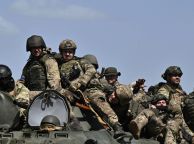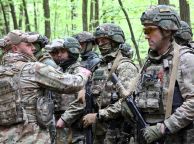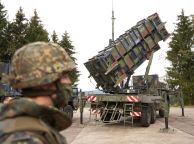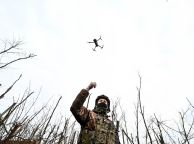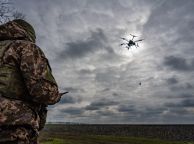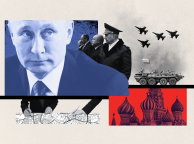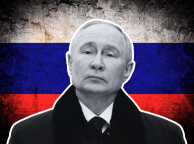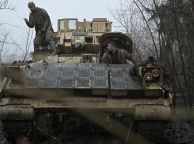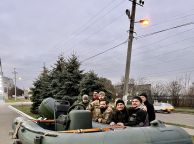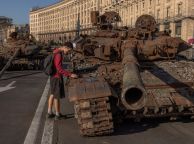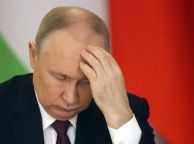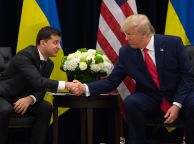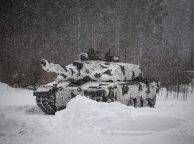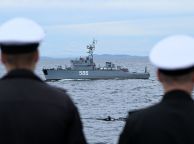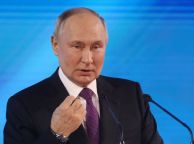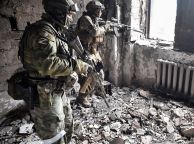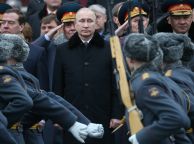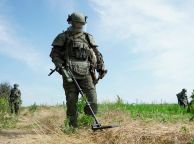By David Brennan
Ukraine's military reported another 1,040 Russian troops "eliminated" between Wednesday and Thursday, which if accurate would make that 24-hour period the deadliest for Moscow's forces since 1,050 were reported eliminated on March 22.
The latest toll brings the total number of Russian casualties claimed by Kyiv since February 2022 to 462,980. The figure is higher than U.S. estimates, which as of February were at around 315,000 Russian troops dead or wounded.
The Ukrainian military on Thursday also reported another 13 tanks destroyed for a total of 7,255 since February 2022, another 28 artillery pieces for a total of 11,836, and one more air defense system for a total of 772.
Newsweek cannot independently verify the Ukrainian figures and has contacted the Russian Defense Ministry by email to request comment.
A New York Times report in August 2023 cited U.S. officials as putting the Ukrainian death toll at close to 70,000. President Volodymyr Zelensky in February acknowledged 31,000 Ukrainians killed in action since the start of the full-scale invasion.
Russian forces appear to be sustaining significant losses as Moscow's plodding offensive grinds on along the eastern front. The Kremlin's troops are on the offensive around the captured Donetsk cities of Avdiivka and Bakhmut, while also pushing forwards in southern Zaporizhzhia Oblast and along the border of Luhansk and Kharkiv Oblasts in the east.
Ukrainian troops are resisting while grappling with a severe ammunition shortage, partially caused by the long delay to the U.S. $61 billion funding package, which was finally signed by President Joe Biden this week.
It was also revealed this week that the U.S. has already provided Ukraine with the long-sought-after long-range MGM-140 Army Tactical Missile System—colloquially known as the ATACMS. Ukrainian forces have reportedly already used the weapon, including in a strike on a military airfield in occupied Crimea.
Ukraine is girding itself for an expected summer Russian offensive, preparatory operations for which are now ongoing. Among the possible targets for the fresh thrust is the strategic city of Chasiv Yar.
"Russian forces have been establishing operational- and strategic-level reserves to support their expected summer offensive effort, but likely have been doing so based on the assumption that even badly-trained and poorly-equipped Russian forces could make advances against Ukrainian forces that lack essential artillery and air defense munitions," the Institute for the Study of War wrote on Saturday.

